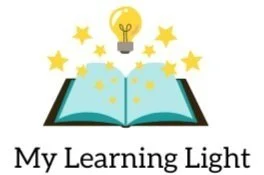Dyslexia: Fact or Fiction?
The original plan for February was to write a little more about what I do, yet my Facebook post from Valentine’s Day would not get out of my head, and then yesterday this fantastic story about how others misunderstand what dyslexia is, or is not, was on the Today show. Honestly, I can probably count on one hand how many stories I’ve seen about dyslexia on a major news network. It was so cool! I took it as a sign, and since leap year gave me one more day this month, I decided to roll with it and squeaked in a February blog post. This is what has been on my mind…
Two of my three children have dyslexia.
One child loves to read.
One child thinks it's just so-so.
One child would prefer any other activity.
As you may have guessed, it’s the child that loves to read the most that has a reading disability, and she’s been fighting that stereotype since the very first day of her diagnosis. There are just too many myths about this language-based learning difference, even in 2024. Here are a few more things that students and families wish others would know:
1. A person with dyslexia can LOVE to read. (see story above) The disclaimer here is, we can’t directly translate the word love for accurate. A summer novel is not the same as a high school text book, and the impact of making a decoding error can vary dramatically. I have a good story about how important a constellation is in American Government. The moment it happened it didn’t make anyone feel like laughing, but now we can giggle… and wonder if the stars actually played a role. 😉
2. A person with dyslexia can read at or above grade level… and get straight A’s… and take advanced placement (AP) classes… or… they might not. Dyslexia does not impact IQ, which means a person with dyslexia has different abilities and strengths, just like everyone else.
3. Dyslexia does not make you see backwards. The first time I called our school to schedule a disability suspect meeting, the principal told me she knew all about dyslexia and the flipping of the b’s and d’s. And I share that, not to be negative, but to help you understand that the people in the places that are supposed to know, don’t always know. Flipping letters is developmental until around the age of 7, and even if letter reversals show up in older students it is not a defining characteristic of dyslexia.
4. Children with dyslexia will become adults with dyslexia. Dyslexia is neurobiological in origin, and will not go away or be “cured”. Appropriate instruction and support helps people with dyslexia learn to read, write, and spell, however they will always have it. It is also important to remember that dyslexia is not related to IQ. It does not need to determine your ability to find success.
5. If I had only read more to my child, they would not have dyslexia. This simply isn’t true, and it’s statements like these that create unnecessary guilt for parents. Reading daily to your child can promote a love of literacy, and it’s great for vocabulary development, however unless a child is raised in extreme circumstances with zero language surrounding them, they will not spontaneously develop dyslexia. In fact, research shows a child has a 40–60% chance of developing dyslexia if the parent has dyslexia. It is in your genes.
For more information about the real signs of dyslexia, go to: decodingdyslexiaiowa.org.

